To provide the best experiences, we use technologies like cookies to store and/or access device information. Consenting to these technologies will allow us to process data such as browsing behaviour or unique IDs on this site. Not consenting or withdrawing consent, may adversely affect certain features and functions.
The technical storage or access is strictly necessary for the legitimate purpose of enabling the use of a specific service explicitly requested by the subscriber or user, or for the sole purpose of carrying out the transmission of a communication over an electronic communications network.
The technical storage or access is necessary for the legitimate purpose of storing preferences that are not requested by the subscriber or user.
The technical storage or access that is used exclusively for statistical purposes.
The technical storage or access that is used exclusively for anonymous statistical purposes. Without a subpoena, voluntary compliance on the part of your Internet Service Provider, or additional records from a third party, information stored or retrieved for this purpose alone cannot usually be used to identify you.
The technical storage or access is required to create user profiles to send advertising, or to track the user on a website or across several websites for similar marketing purposes.
 A new analysis of the UK’s job market claims there were 52 percent fewer available jobs listed for professionals with technology skills at the end of 2019, compared to six months earlier. Accenture’s UK Tech Talent Tracker analysed data from LinkedIn’s Professional Network. This shows 78,000 job vacancies advertised that require skills in emerging technologies, down from 162,000 last June. This decrease was driven by a 64 percent reduction in the number of advertised jobs for data analysts. (more…)
A new analysis of the UK’s job market claims there were 52 percent fewer available jobs listed for professionals with technology skills at the end of 2019, compared to six months earlier. Accenture’s UK Tech Talent Tracker analysed data from LinkedIn’s Professional Network. This shows 78,000 job vacancies advertised that require skills in emerging technologies, down from 162,000 last June. This decrease was driven by a 64 percent reduction in the number of advertised jobs for data analysts. (more…)







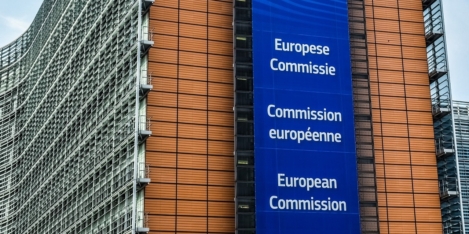
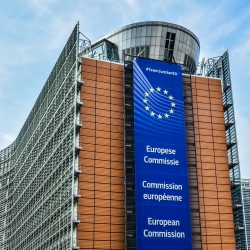 The European Commission has put forward a strategy to promote the development of AI and robotics while putting people first and defending European values and rights. The strategy acknowledges that AI can open up new opportunities for businesses and bring solutions to challenges such as climate change. However, it aims to address the social, legal and ethical impact of new technology.
The European Commission has put forward a strategy to promote the development of AI and robotics while putting people first and defending European values and rights. The strategy acknowledges that AI can open up new opportunities for businesses and bring solutions to challenges such as climate change. However, it aims to address the social, legal and ethical impact of new technology. 
 Employees use just 38 percent of their knowledge and expertise at work, meaning organisations are failing to unlock even half of the brainpower of their people, research has claimed. According to the survey of more than 1,000 UK and US “knowledge workers” by
Employees use just 38 percent of their knowledge and expertise at work, meaning organisations are failing to unlock even half of the brainpower of their people, research has claimed. According to the survey of more than 1,000 UK and US “knowledge workers” by 
 Although Europe has much scientific research to be proud of, the region falls worryingly short when it comes to commercialising its discoveries, a
Although Europe has much scientific research to be proud of, the region falls worryingly short when it comes to commercialising its discoveries, a 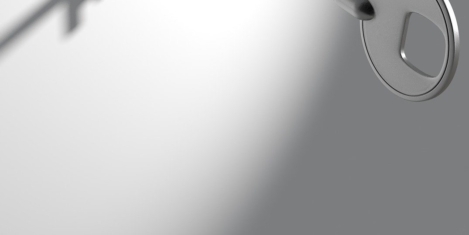
 The public sector must uphold high standards of conduct when adopting AI, a
The public sector must uphold high standards of conduct when adopting AI, a 
 Senior employees being too confident about the value of their ideas could be one reason businesses are failing, according to research by the University of Cologne. The study, conducted by Professor Fabian Sting and a team of interdisciplinary co-authors, highlights how choosing the wrong ideas to pursue can lead businesses to make unwise investments and miss out on opportunities, which could threaten their survival. A large part of the problem, it says, is that the person who comes up with the idea overestimates how successful their innovation will be and views their skill or performance as better than it actually is.
Senior employees being too confident about the value of their ideas could be one reason businesses are failing, according to research by the University of Cologne. The study, conducted by Professor Fabian Sting and a team of interdisciplinary co-authors, highlights how choosing the wrong ideas to pursue can lead businesses to make unwise investments and miss out on opportunities, which could threaten their survival. A large part of the problem, it says, is that the person who comes up with the idea overestimates how successful their innovation will be and views their skill or performance as better than it actually is. 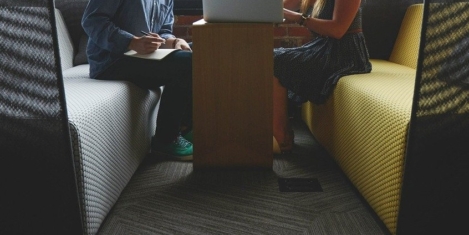
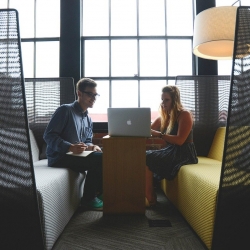



 As AI continues to disrupt the world of work, a new report says upskilling and reskilling will be crucial in developing workers’ competencies to complement technological innovation. Yet according to the
As AI continues to disrupt the world of work, a new report says upskilling and reskilling will be crucial in developing workers’ competencies to complement technological innovation. Yet according to the 
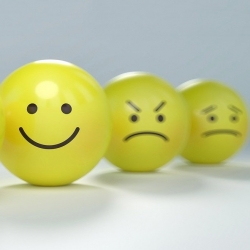 Six in 10 people feel unable to express their true emotions in the workplace, new
Six in 10 people feel unable to express their true emotions in the workplace, new 










February 5, 2020
Bridging the gap between the reality and perception of engagement
by Callum Gill • Comment, Flexible working, Technology, Workplace